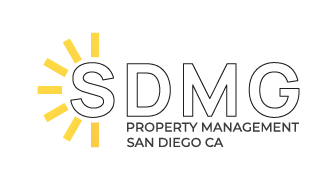Legal Considerations for Property Managers in San Diego
Property management in San Diego, like anywhere else, is a complex field that requires a deep understanding of both state and local laws. As a property manager in this vibrant city, navigating the legal landscape is crucial to ensure smooth operations, protect your assets, and maintain positive relationships with tenants. This article will explore the key legal considerations, tenant rights and landlord obligations, local ordinances, lease termination and eviction processes, and the potential liabilities associated with property management in San Diego.
Key Legal Considerations
State Laws
California has comprehensive laws governing rental properties, including the California Civil Code and the Unruh Civil Rights Act, which protect tenants’ rights. Understanding these laws is essential for property managers to avoid legal disputes and ensure compliance.
Local Ordinances
San Diego has its own set of ordinances that property managers must adhere to, such as those related to housing discrimination, rent control, and building codes. Familiarity with these regulations is vital for managing properties effectively and legally.
Navigating Tenant Rights and Landlord Obligations
Tenant Rights
Tenants in San Diego have various rights under state law, including the right to live in a habitable dwelling, privacy, and protection against discrimination based on race, color, religion, sex, familial status, or national origin. Property managers must be aware of these rights to manage tenant relations effectively.
Landlord Obligations
Landlords have several obligations, including providing a safe living environment, handling security deposits correctly, and complying with fair housing laws. Failure to meet these obligations can lead to legal issues and financial penalties.
Local Ordinances in San Diego
San Diego has ordinances that property managers should be aware of:
- Rent Control: The city has rent stabilization policies that limit how much landlords can increase rents.
- Housing Discrimination: Property managers cannot discriminate against tenants based on protected characteristics.
- Building Codes: All properties must meet local building codes and safety standards.
Handling Lease Termination and Eviction Processes
The process of terminating leases and evicting tenants involves strict procedures to ensure fairness and legality. Property managers must follow the proper steps, including issuing notices to quit, addressing any tenant defenses, and obtaining court orders for eviction.
Potential Liabilities for Non-compliance
Failure to comply with legal requirements can expose property managers to significant liabilities, including:
- Financial Penalties: Fines for violating local ordinances or state laws.
- Legal Fees: Costs associated with defending against lawsuits or evictions.
- Reputation Damage: Negative publicity can harm the reputation of the property management company.
Being a property manager in San Diego requires a thorough understanding of the legal landscape to operate successfully and avoid costly mistakes. By staying informed about state laws, local ordinances, tenant rights, landlord obligations, and the eviction process, property managers can mitigate risks, protect their investments, and maintain strong relationships with tenants.
